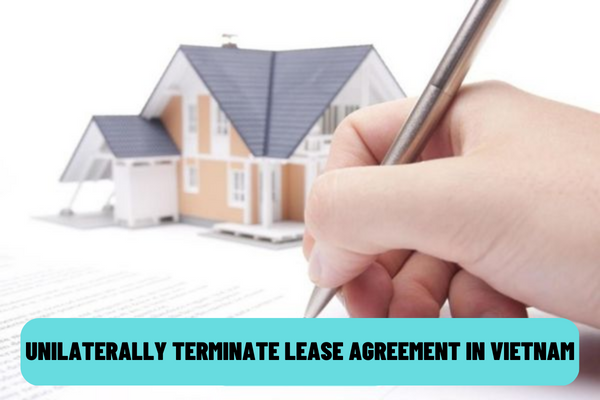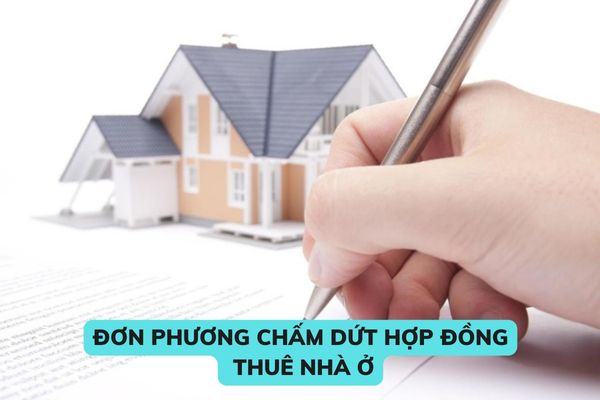In what cases are the parties entitled to unilaterally terminate the lease agreement in Vietnam?
In what cases are the parties entitled to unilaterally terminate lease agreement in Vietnam?
Clause 2, Article 132 of the 2014 Law on Housing in Vietnam stipulates that the lessor is entitled to unilaterally terminate the lease agreement and withdraw the house in one of following cases:
- The lessor lease out the state-owned houses or social houses ultra vires and not satisfying requirements as prescribed in this Law;
- The lessee has not paid the rent for 3 months or more without reasonable explanation;
- The lessee uses the house for improper purposes as agreed in the agreement;
- The lessee expands, renovates, or demolishes the house under lease agreement without the consent of the homeowner;
- The lessee exchanges, lends, sublets the house under lease agreement without consent of the lessor;
- The lessee still creates disorder or breaches hygiene an environment conditions causing negative effects on activities of the neighborhood although he/she is warned for the third time by the lessor or the chief of neighborhood, the chief of village;
- Cases prescribed in Clause 2 Article 129 of this Law.
The lessee is entitled to terminate unilaterally the lease agreement according to the provisions of Clause 3, Article 132 of the 2014 Law on Housing in Vietnam in one of following cases:
- The lessor does not repair the house when it is seriously damaged;
- The lessor increases the rents unreasonably or increases the rents without notification to the lessee;
- The right to enjoyment of the house is restricted by interests of a third party.

In what cases are the parties entitled to unilaterally terminate lease agreement in Vietnam? (Image from the Internet)
In what case is the lease agreement terminated?
In Article 131 of the 2014 Law on Housing in Vietnam, the cases of termination of a lease agreement include:
- With respect to agreements on state-owned house lease, they shall be terminated if they are subject to one of cases prescribed in Clause 1 Article 84 of this Law.
- With respect to agreements on non-state-owned house lease, they shall be terminated in one of the following cases:
+ The lease agreement expires; regarding the unlimited term agreement, it shall terminate after 90 days, from the day on which the lessor notify the lessee of the termination of the lease agreement;
+ Both contracting parties agree to terminate the agreement;
+ The house for lease no longer exists;
+ The lessor does not live with anybody when he/she dies or is declared missing by the court;
+ Any house for lease which is damaged, in danger of collapse or in the area subject to land withdrawal or housing clearance or demolition according to decisions issued by the competent agency; or any house for lease subject to decision on compulsory purchase order or commandeering issued by the State to use for other purposes.
The lessor must notify the lessee of the termination of the lease agreement in writing 30 days in advance as prescribed in this Clause, unless otherwise agreed;
+ The agreement terminates as prescribed in Article 132 of this Law.
Under what circumstances is the lessor allowed to increase the housing rent?
Article 129 of the 2014 Law on Housing in Vietnam provides for the lease term and housing rents as follows:
Lease term and housing rents
1. The lessor and the lessee may agree about lease term, rents and payment, lump sum or installment payments; if there are any regulations on housing rent regulated by the State, the contracting parties shall comply with regulations.
2. If the lessor renovates the house with consent of the lessee although the lease term does not expire, the lessor is entitled to adjust the housing rents. The new rent shall be agreed by contracting parties; if not, the lessor is entitled to unilaterally terminate the lease agreement and pay compensation to the lessee as prescribed.
3. The lawful rights and interests of the lessor and the lessee shall be protected by the State over the lease term.
Thus, the lessor is entitled to increase the housing rent even though the lease agreement is still valid in case the lessor renovates the house with consent of the lessee.
LawNet
